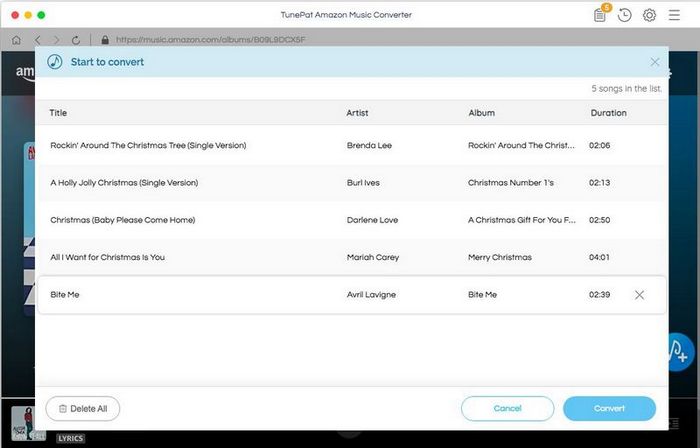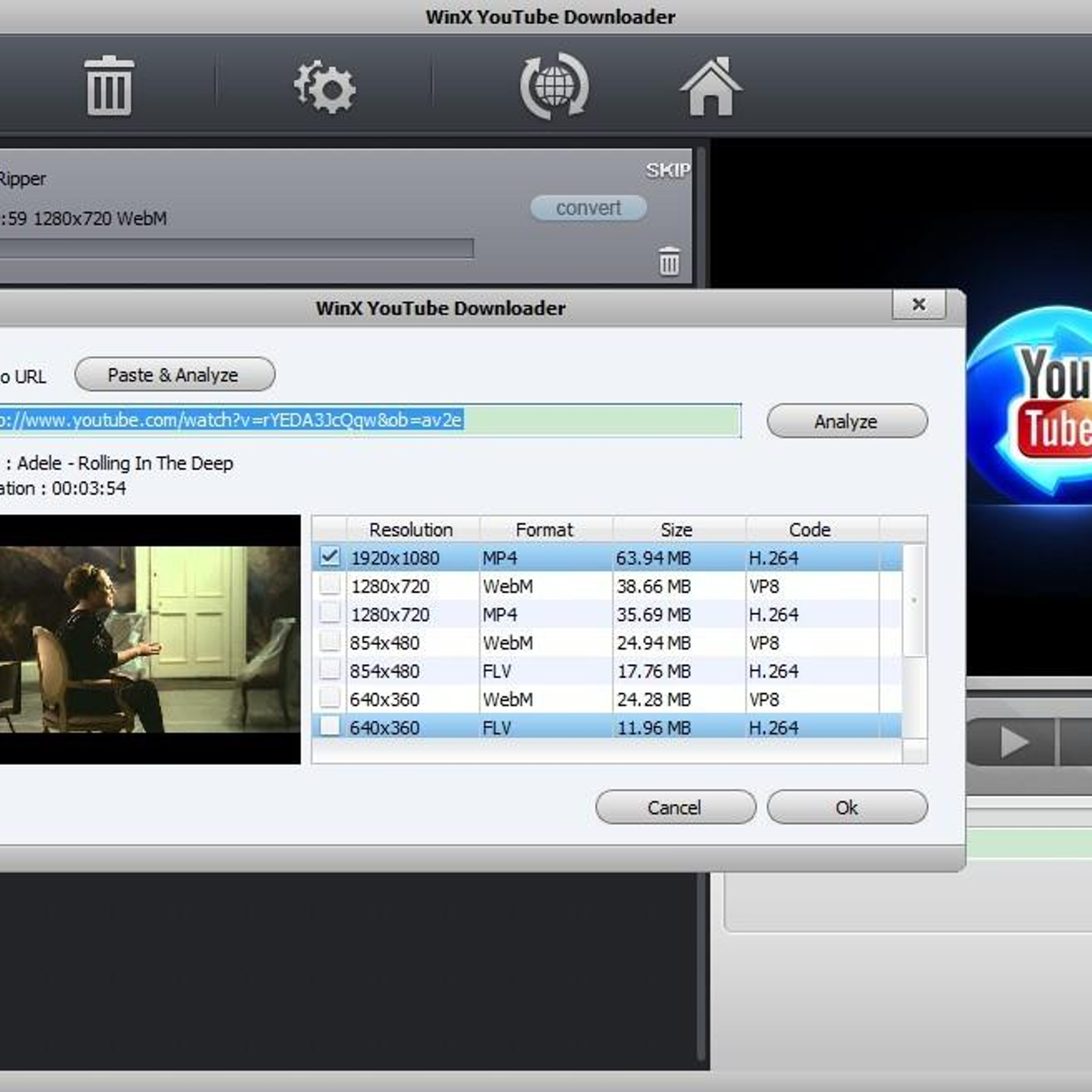- Uninstall Amazon Mp3 Downloader Mac Download
- Amazon Mp3 Downloader App
- Uninstall Amazon Mp3 Downloader Mac
- Amazon Mp3 Downloader Ios
Potentially unwanted apps (PUAs) are the most common types of malware currently attacking macOS computers. Amazon Assistant “virus” is one of them. Even though it’s a legitimate plugin, Amazon Assistant might act as a browser hijacker and cause too many annoying activities.
In this article, we’ll show you how to cope with this PUA and effectively protect your Mac.
Uninstall Amazon Mp3 Downloader Mac Download
Input “ control panel ” in Run window and hit Enter key to open Control Panel. Click Uninstall a program: 4. Right-click programs which may be related with Amazon Music Malware and click Uninstall: Amazon Music Malware may re-install itself multiple times if you don’t delete its core files and related malware. Remove Amazon Assistant from Safari. Step 1: Start the Safari app. Step 2: After hovering your mouse cursor to the top of the screen, click on the Safari text to open its drop down menu. Step 3: From the menu, click on ' Preferences '. Step 4: After that, select the 'Extensions' Tab. Amazon MP3 Downloader is a small and intuitive application that downloads all MP3 audio tracks purchased through Amazon.com, as the name implies. Do you have problems when you try to remove Amazon MP3 Downloader from your PC? If you are looking for an effective way to uninstall Amazon MP3 Downloader this guide will help you to accomplish that!
Everything you need to know about Amazon Assistant Virus
Is Amazon Assistant a virus? Technically, it’s not. Amazon Assistant is a legitimate browser extension designed to improve the shopping experience by providing the best offers from Amazon.

It looks like a useful tool called to make online shopping better. Even so, the app has a bunch of negative reviews from unsatisfied users who blame it on having a malicious behavior.
Amazon Assistant virus negatively affects browser performance and is categorized as PUA and browser hijacker. Once installed, this extension modifies browser settings and starts pushing intrusive pop-up ads. Although the term “virus” is not correct to describe this kind of threat, it’s widely used due to the suspicious data-tracking activity performed by the tool.
How did the Amazon Assistant virus get on my Mac?
The app can be freely downloaded directly from Amazon’s official website, Google Play Store, Chrome Web Store, or Mozilla Firefox add-on store. But be careful as it can also get on your computer bundled with other freeware.
Bundling is the primary distribution method of PUAs. Unfortunately, some software doesn’t honestly disclose that other apps will also be installed along the way. To avoid getting into this trap, always opt for custom installation.
Primary symptoms of Amazon Assistant virus
As a browser hijacker, the Amazon Assistant virus tends to change the default homepage and search engine without your permission. It turns browsing experience into a nightmare by:
- Displaying tons of pop-ups and banners, promoting fake updates or suspicious software
- Offering too many unrelated shopping deals
- Opening new browser windows unexpectedly
- Turning random text on web pages into hyperlinks
- Installing other adware without your agreement

Amazon Assistant pop-up virus might also be the reason for decreased computer performance or sudden browser freeze.
Potential risks of Amazon Assistant virus
Despite its name, the Amazon Assistant virus is not so harmful as it seems. Still, using this tool might be potentially dangerous to your privacy and data security.
Once getting on a browser, the extension starts tracking your data related to non-personally identifiable information and browsing history: visited websites, clicked links, search queries, etc. Although gathered data is used for advertising purposes only, there is also a chance of transferring it to ad networks and other third parties.
As a browser hijacker, the Amazon Assistant virus can redirect you to affiliate pages. It’s not only annoying but unsafe, as you’re running a risk of landing on an infected website and facing severe malware there.
How to get rid of Amazon Assistant virus
There are several steps to removing the Amazon Assistant virus from your Mac. First of all, you need to delete any suspicious apps downloaded just before you noticed the malware. Then it’s time to remove the malicious extension from your web browsers. Let's see how to do this.
Step 1. Delete the app

- Go to the Application folder and look for any malicious apps.
- Drag it to the Trash.
- Empty the Trash.
- In the Finder, choose Go and then Go to Folder.
- Type the following folder names into the box, press Go and drag to the Trash any files related to the Amazon Assistant virus:

/Library/LaunchAgents
/Library/LaunchDaemons
/Library/Application Support
/Users/Shared
Same operation, done automatically
If you want to clean these parts automatically (and much quicker) — use the analogous tool in CleanMyMac X. Not to be confused with “MacBook Keeper” , this one a legit Mac cleanup tool.
Get a free version of CleanMyMac X from the developer’s site
In the app, click Optimization > Launch Agents
Note that to uninstall the Amazon Assistant virus, you should get rid of every component associated with this tool. Manual removal won’t always be effective, as there are still may be hidden files left on your device. To find them and remove the PUA once and for all, scan your computer with a reliable anti-malware tool.
As for me, CleanMyMac X is the best option, as it’s notarized by Apple. To be sure that my Mac is protected, I regularly use its Malware Removal module. Here is how it works:
- Download and install CleanMyMac X (at no cost at all).
- Launch it and select Malware Removal on the left-side panel.
- Press Scan.
- If the software finds anything malicious on your computer, it will let you know. If it does, press Remove.
Step 2. Remove Amazon Assistant virus from all your browsers
Safari
- Launch Safari and go to the Safari menu > Preferences at the top of the screen.
- Choose the Extension tab and look for the suspicious extension.
- Once you find it, click on it and press Uninstall.
Google Chrome
- Launch Chrome and paste ‘chrome://extensions’ to the address bar.
- Scroll the list to find the malicious extension.
- If you see one, press Remove next to it.
You can also open the list of your Chrome extensions by going to the Chrome menu. Choose Preferences and then select the Extensions tab on the sidebar.
Mozilla Firefox
- Launch Firefox and click the menu button (three horizontal lines on the right side of the address bar).
- Select Add-ons > Extensions.
- Look for Amazon Assistant at the Manage Your Extensions section.
- Choose it, then click on the three-dot menu and press Remove.
If removing the Amazon Assistant virus from your browsers seems like a lot of work, I recommend using the CleanMyMac X to do all these steps instead of you. With the Extensions module, you can remove any extension safely, along with all related components. Here is how I remove extensions using CleanMyMac X:
- Launch the program and choose Extensions in the sidebar.
- Select the browser in the left-side panel.
- Pick the checkbox next to the required extension.
- Press Remove. Nothing more!
How to protect your Mac from PUA
Amazon Mp3 Downloader App
To avoid getting Amazon Assistant virus or any other malware installed on your computer, never turn to free download websites and always pay attention to links you open as well as files or apps you download. When it comes to extensions, find out more information about it before installation to be sure you’ll get it from a credible source.
Uninstall Amazon Mp3 Downloader Mac
Regular malware checks will also help you keep your computer safe. To protect my Mac automatically, I opt for a real-time malware monitor from CleanMyMac X. It’s called to eliminate all kinds of threats by running regular scans on the background.
|
| |||||||||||||||||||||||||||||||||||||||||||||||||||||||||||||||||||
